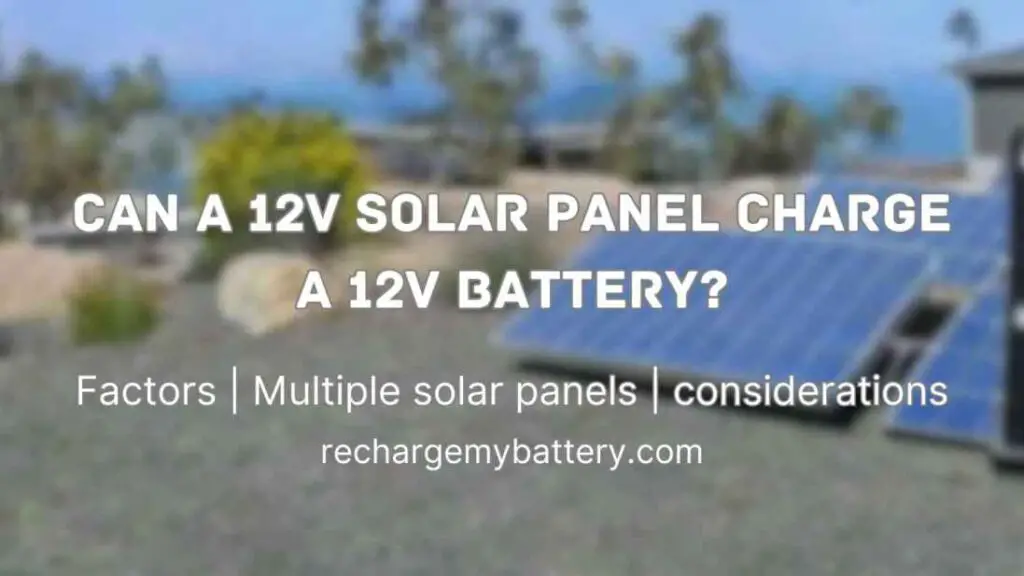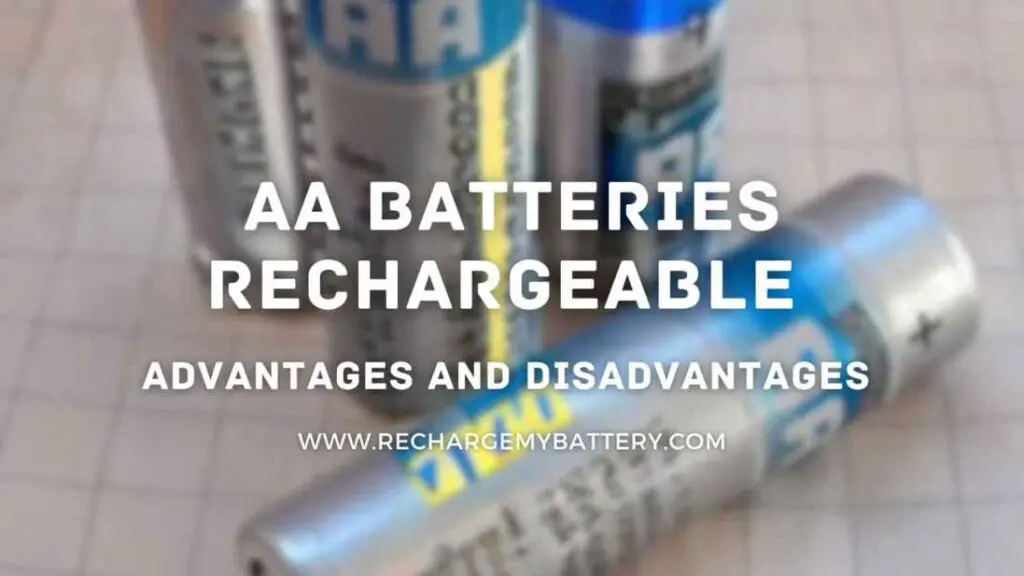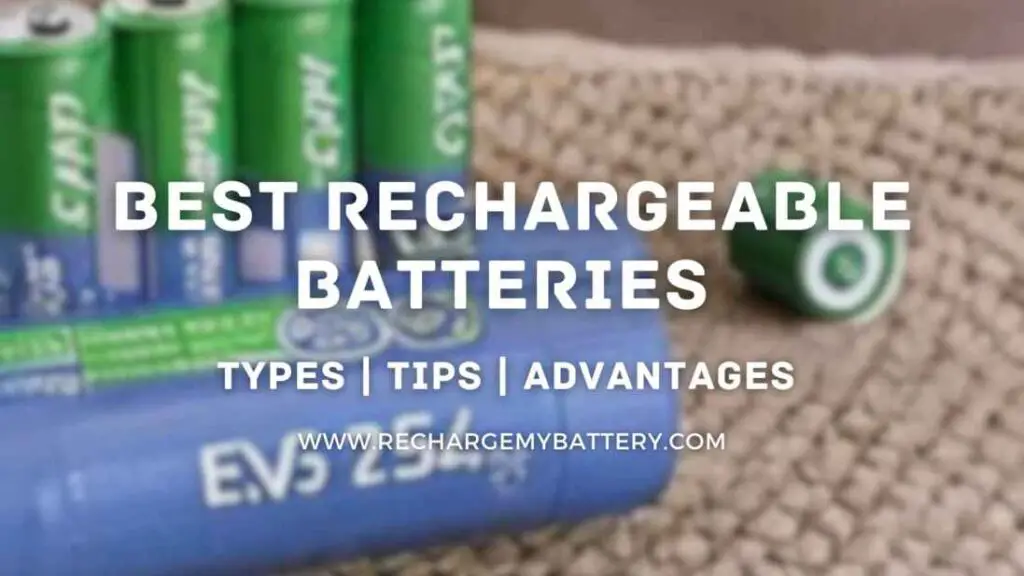In this article, we will delve into the compatibility and efficiency of using a 12V solar panel to charge a 12V battery, providing insights and guidance on this topic.
Solar panels and batteries are essential components of renewable energy systems, enabling us to capture and store solar power for a wide range of applications. However, there is a common question among enthusiasts and beginners: Can a 12V solar panel charge a 12V battery? Let’s find out its answer.
Understanding Solar Panels and Batteries
To comprehend the compatibility between a 12V solar panel and a 12V battery, it is crucial to grasp the fundamental concepts of solar panels and batteries.
A solar panel comprises photovoltaic cells that convert sunlight into electricity, typically in the form of direct current (DC).
On the other hand, batteries serve as energy storage devices, capable of storing electrical energy and delivering a steady power supply when required.
Voltage Compatibility
Efficient charging relies on the voltage compatibility between the solar panel and the battery. When we talk about a 12V solar panel and a 12V battery, it indicates that their nominal voltage ratings align.
Matching the voltage of the solar panel and the battery is essential to optimize energy transfer during the charging process.
Charging a 12V Battery with a 12V Solar Panel
To charge a 12V battery with a 12V solar panel, a charge controller is commonly used. The charge controller plays a crucial role in regulating the charging process and safeguarding the battery from overcharging or undercharging. Acting as a bridge between the solar panel and the battery, it ensures a safe and efficient charging experience.
Utilizing a 12V solar panel to charge a 12V battery offers various advantages. It simplifies the system setup since there is no need for voltage conversion. This simplification reduces complexity and potential energy losses during charging, resulting in improved overall efficiency.
Factors Affecting Charging Efficiency
Several factors can affect the charging efficiency of a 12V solar panel and a 12V battery system. These are:
- One important factor is the orientation of the solar panel. Maximizing energy absorption requires proper positioning of the panel towards the sun.
- Shading is another critical consideration. Even partial shading can significantly reduce the overall output of the solar panel, affecting the charging efficiency.
- Temperature is another factor that can impact the efficiency of the charging process. Higher temperatures can reduce the performance of the solar panel, resulting in lower charging rates. It is essential to consider temperature variations and take appropriate measures to optimize the system setup for efficient charging.
By considering these factors and taking the necessary steps to optimize the system, the charging efficiency of a 12V solar panel and a 12V battery can be improved.
Using Multiple Solar Panels
- When additional power is required, multiple 12V solar panels can be used to charge a 12V battery.
- The solar panels can be connected in parallel or series configurations.
- Parallel connections increase the current capacity for more power generation.
- Series connections increase the voltage output.
- Proper sizing of the solar panel array is crucial to ensure efficient charging and prevent the overloading of the battery or charge controller.
- Consider factors such as the total power requirement, available sunlight, and the capacity of the charge controller when determining the appropriate number and configuration of solar panels.
- By correctly sizing and connecting multiple 12V solar panels, higher power demands can be met, and effective charging of a 12V battery can be achieved.
Other Considerations
See the below points:
- Choose the appropriate battery type for the specific application when charging a 12V battery with a 12V solar panel.
- Consider factors such as capacity, cycling ability, maintenance needs, and cost when selecting the battery.
- Follow safety precautions when working with solar panels and batteries.
- Adhere to installation guidelines provided by the manufacturer.
- Use proper wiring and connectors for a secure and reliable connection.
- Protect the system from overvoltage, overcurrent, or short-circuiting using fuses or circuit breakers.
- By selecting the right battery and following safety guidelines, ensure a successful and safe charging experience with your 12V solar panel and 12V battery system.
Conclusion
In conclusion, a 12V solar panel is compatible with charging a 12V battery efficiently. By considering factors such as voltage compatibility and utilizing appropriate charge controllers, solar energy can be effectively harnessed and stored in a 12V battery for a wide range of applications.
Understanding the various factors that can affect charging efficiency and implementing best practices will ensure the optimal performance of the system.
Thank you so much for reading this article.
FAQs
Q1. Can I use a higher-voltage solar panel to charge a 12V battery?
Q2. What if my solar panel has a lower voltage rating than the battery?
Q3. Can I charge a 12V battery with a 24V solar panel?
Q4. Is it necessary to use a charge controller when charging a 12V battery with a 12V solar panel?
It ensures that the battery receives the correct amount of charge and protects it from potential damage caused by excessive voltage or current. By using a charge controller, you can safely and efficiently charge your battery using a solar panel.
Q5. What are the advantages of using solar panels to charge batteries?
Solar panels are particularly beneficial for off-grid systems and backup power solutions, as they enable self-sufficiency and resilience. By utilizing solar energy to charge batteries, we can reduce carbon emissions, conserve natural resources, and promote a cleaner and more sustainable future.


